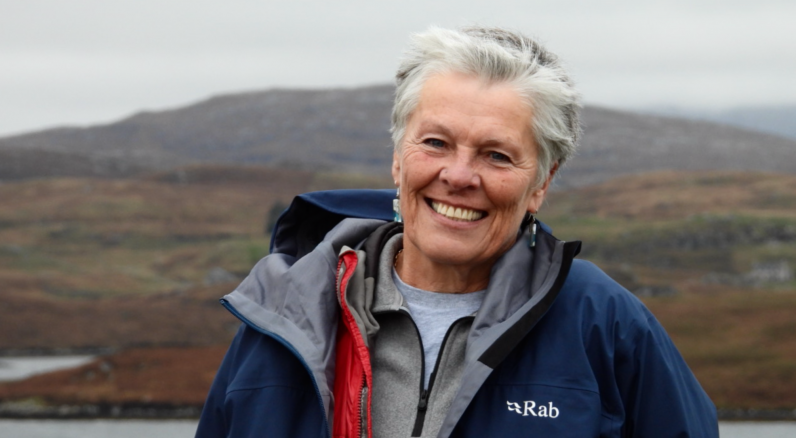With my retirement date at the end of 2023 looming, it feels like a good time to reflect back on almost half a century of ‘work life’. So please indulge me while I reminisce just a little!
Perhaps because my Dad was bipolar (or ‘manic depressive’ as it was then called), I have, I think, always been drawn to those who have the experience of disability or long term ill-health, and in particular to those with conditions which society deems fit to mock, exclude and stigmatise. While a sixth form student I set up a visiting scheme to the local psychiatric hospital, which was very eye-opening for girls with a sheltered upbringing, but which also taught me how mental ill-health can happen to any of us, at any time! Between school and Uni I got a job away from home as a nursing auxiliary in a long-stay hospital. I looked after very severely disabled children whose parents visited them only on special days such as birthday or Christmas (absolutely no judgment here – I’m sure they had been advised that was for the best.) Then, following Uni and a few years travelling the world, I got a job as a social work assistant in (another) large mental hospital (again, using the terminology of its time). My job was to support many of the long-stay patients to move into ‘care in the community’ (which seemed to mean hostel, group home or whatever). Some had been in-patients for decades and one had even been born there as the child of a ‘feeble-minded’ patient (yes, this was her official diagnosis). Though some seemed to benefit from this uprooting, for others it felt like a simple transfer from one bigger institution to a smaller one, with the additional trauma of fractured relationships, roles and identities that had been built up over many years. All these experiences were, as you can imagine, quite formative for the younger me.
I decided to train as a social worker and from then onwards, I have worked with adults with physical and/ or learning disabilities, family carers, older people and people with dementia. Although the specific conditions and organisations I have worked with have varied over the years, and policy and practice have been through many crises and iterations, what strikes me most is the shared experience that all those people had. The experience of being disabled by societal attitudes.
Going back to my Dad, the thing I remember most was how my Mum felt obliged to completely hide what was happening, even, I believe, from their closest friends (and for quite a while, from us children). As he was an architect, it was accepted that any whiff of mental illness would scupper his reputation, his practice and of course, the family income. So, as his office was at home, Mum had to regularly field phone calls, letters and all other contacts with lies and half-truths about his absence, while Dad lay (sometimes for weeks) in a depressed heap in their bed, or alternatively was high as a kite, out spending everything on fast cars we could no way afford! With hindsight, how hard it must have been for them to have no one to talk honestly with about a situation which was hugely disabling and stressful for them both. And how much more could Dad’s wonderful creative bi-polar brain have contributed if society had only understood it better.
Fast forward to dementia and the programme ‘Dementia without Walls’ which I set up in 2011 while at Joseph Rowntree Foundation. Inspired by those who I met early on, the programme aimed to explore new ways of framing dementia. We looked at dementia through many lenses – gender, sexuality, language and imagery, collective living, peer support – and learnt a huge amount from those with the lived experience about the barriers and facilitators to a meaningful life. It was in this period that I met the wonderful folk at Innovations in Dementia.
And now for the last 7 years I have been hugely privileged to be a co-director with Innovations. This role has brought me into contact with hundreds of people living with dementia, and I have worked alongside many of them on projects big and small, long and short. Some have been academic, some creative, some essentially activist. Again my overriding impression has been of the talents, potential and resilience of these people, ordinary men and women who have been hit by the predicament of dementia and who have had to find the strength to reinvent themselves and just get on with life. How much easier this could be if we, society as a whole, could keep our focus squarely on the person, not the dementia, and work to ensure they feel included in every aspect of normal life. How much easier if the media presented dementia as a predicament rather than a tragedy. How much easier if we didn’t all leap in our minds straight to the end-of-life when we hear about a friend’s diagnosis (there is often plenty of life to be lived between those two points). And how much easier if the State supported people living with dementia with counselling and a whole range of rehabilitative therapies that are much more available to those with other conditions.
Of course, things have changed for the better in many ways. To my knowledge, hospital wards no longer dish out tea-with-milk-and-sugar from one enormous teapot, as they did on the long-stay wards of those psychiatric hospitals. Nor are patients put two in a bed on their annual holiday to Butlins, to keep costs down (yes that really happened). Hearing people with dementia speaking at conferences or on TV, or co-researching with academics, is no longer a surprise – though it is always powerful. But still people with dementia are routinely denied the reasonable adjustments to which disability law entitles them. Fewer are receiving any services at all, as local authority budgets shrink and eligibility criteria tighten. We cannot be complacent.
But the great weapon we now have is the voices of people with dementia themselves. They will not go back into the box. We are seeing how new voices pipe up as more people get diagnosed and form connections with each other. How, through the DEEP network, groups come together to work for change. And how individuals are challenging attitudes and practices through making their own films, art, books, songs and blogs. This alone keeps me hopeful about the future.
So I’d like to finish by saying a huge thank you to all the amazing people I’ve met and worked with on so many wonderful projects. I have learnt more from each and every one of you than you will ever know.
I will have plenty to keep me busy. I will keep felting and have recently started (though may well not finish) a fine art degree – which is fun, but also a constant battle against impostor syndrome. I also need to keep planning visits to my 3 sons (and grandson Rupert) who all live on different continents – I’m very lucky that they have chosen three wonderful places (Bavaria, Boston MA and Nairobi), though they are all long journeys from Lewis! I am planning to volunteer in South Africa next year too – something I’ve always wanted to do but never had the chance ‘til now. And I also want to get more involved in my local community up here in Ness.
Really my only fear about retirement (apart from – can I afford it?!) is that I might lose touch with you all – you are part of my life and I care about your stories and how you are faring. So please do keep in touch, if you want, via my email phillyhare@gmail.com, or through social media (https://www.facebook.com/philly.hare and https://www.instagram.com/fullmoonfelting/ )
Take care!

